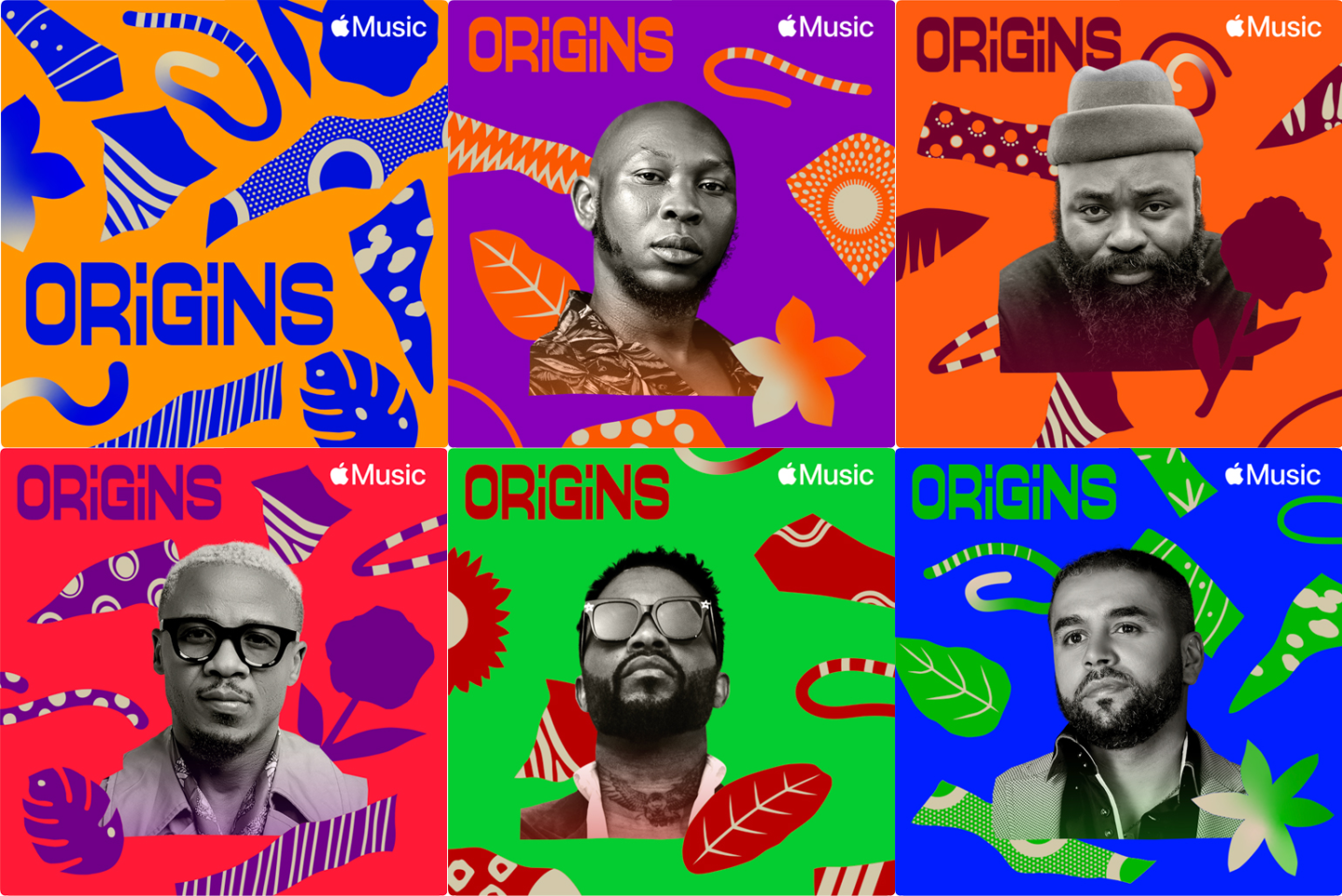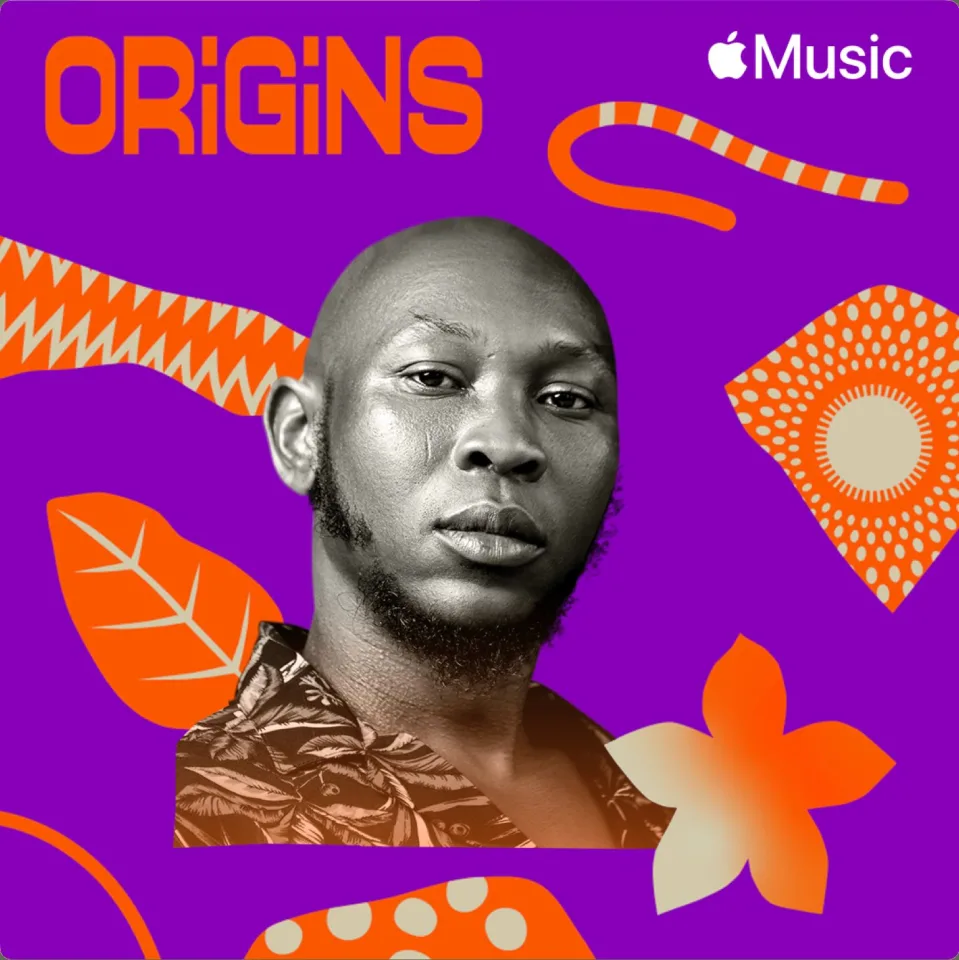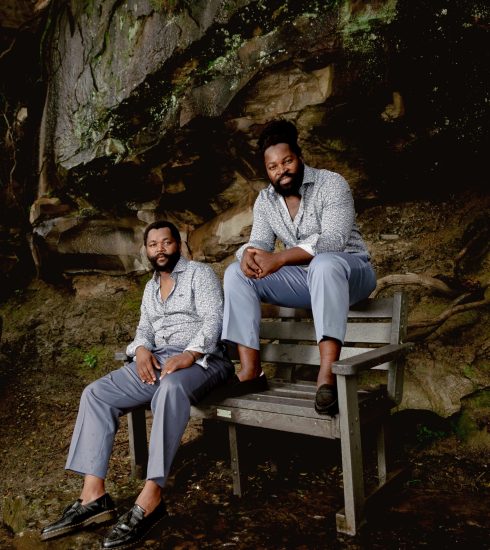Apple Music Puts Spotlight on African Genres in Honour of Africa Month

Apple Music is celebrating the origins of modern day African music as we know it with Origins their theme for Africa Month in May this year. From Amapiano to Afrobeats, to Bongo Flava to Alté, Apple Music will be hitting the rewind button by celebrating the music and artists from yester-year who played a critical role in shaping the sounds of modern African music.
Origins will focus on one region a week covering West, Central, East, North and Southern Africa, with one lauded musician from each region curating an exclusive guest playlist that highlights the roots of their respective genre, namely, Seun Kuti (Afro-Beat Origins), Nduduzo Makhathini (Mzansi Jazz Origins), Fally Ipupa (Ndombolo Origins), Alikiba (Bongo Flava Origins) and Bilal Sghir (Raï Music Origins).
In addition to this, the sounds of African music’s Origins will be captured in an overarching playlist featuring the biggest and best African songs the world has come to know and love. Lastly, Origins will feature two exclusive Home Sessions from Nigeria’s Young Jonn and South Africa’s Bongeziwe Mabandla, with Jonn covering Lagbaja’s “Never Far Away” and Beautiful Nubia’s “What a Feeling”, alongside his hit single “Xtra Cool”, while Bongeziwe will be covering Brenda Fassie’s “Too Late For Mama” and Shwi No Mtekhala’s “Ngafa”, alongside his track “Soze”.
“Afrobeats is a representation of the true reality of Africa people, where we find our joy in the struggle for liberation, and the restoration of our dignity. Where our music represents all that was lost and all that was reclaimed. The genre today has played a great role in the success of African music generally and has been able to show the cultural and political consciousness of African people.” – Seun Kuti.

“Jazz is an indefinable word that was given to a music that symbolises a refusal to disconnect with origin in Africa. It is therefore a product of black memory and solidarities over the Atlantic. It is a way of being free, an opportunity to co-create one’s reality.” – Nduduzo Makhathini.

“Ndombolo Soukouss has had a great influence on the new generation of Congolese and African musicians in the way they create music. First of all, the fast-paced, danceable rhythm of Ndombolo Soukouss has been used in many contemporary African music styles, including Ivorian coupe-decale, Nigerian Afrobeat, Angolan kuduro, and many others. This influence is also reflected in the way artists integrate dance and body movements into their stage performances.” – Fally Ipupa

“There’s no doubt that Bongo Flava has played a huge role in the development of African music and in presenting African culture to the world. It continues to this day to contribute to the socio-economic development and wellbeing of the people as well. Bongo Flava has also played a vital role in bridging African creatives and bringing unity amongst stakeholders in the African music industry.” – Alikiba.

“Raï is an Algerian musical genre, born at the beginning of the 20th century, it’s a means of conveying social reality without taboos or censorship. It addresses themes such as love, freedom, despair and societal pressure. The lyrics are typically aimed at young people and deal with heartache, nostalgia and intricacies of social life. Raï has become an international sensation mainly thanks to Algerian immigrants in Europe.
Raï has settled in European districts with predominantly North African minorities where the artists exhibited themselves in local cabarets. Gradually, Raï has grown to be more and more present in radio and television as well as discotheques; over time, most famous Raï singers started resembling international pop stars. Inevitably, this has played a role in the success of African music outside the continent since it was originally coming from an African country.” – Bilal Sghir.

- Check out Africa Month: Origins Collection: https://apple.co/AfricaMonthOrigins
- Origins Playlist: https://apple.co/OriginsPlaylist
- Seun Kuti: Afro-Beat Origins: https://apple.co/AfrobeatOrigins
- Nduduzo Makhathini: Mzansi Jazz Origins: https://apple.co/MzansiJazzOrigins
- Fally Ipupa: Ndombolo Origins: https://apple.co/NdomboloOrigins
- Alikiba: Bongo Flava Origins: https://apple.co/BongoFlavaOrigins
- Bilal Sghir: Rai Music Origins: https://apple.co/RaiMusicOrigins
About Apple Music
Apple loves music. Apple revolutionized the music experience with iPod and iTunes. Today, the award-winning Apple Music celebrates musicians, songwriters, producers, and fans with a catalog of over 100 million songs, expertly curated playlists, and the best artist interviews, conversations, and global premieres with Apple Music Radio. With original content from the most respected and beloved people in music, autoplay, time-synced lyrics, lossless audio, and immersive sound powered by Spatial Audio with Dolby Atmos, Apple Music offers the world’s best listening experience, helping listeners discover new music and enjoy their favorites while empowering the global artist community. Apple Music is available in over 165 countries and regions on iPhone, iPad, iPod touch, Mac, Apple Watch, Apple TV, HomePod mini, CarPlay, and online at music.apple.com, plus popular smart speakers, smart TVs, and Android and Windows devices. Apple Music is ad-free and never shares consumer data with third parties. More information is available at apple.com/apple-music.
United Arab Emirates, Australia, Barbados, Belgium, Brazil, Botswana, Canada, Switzerland, Côte d’Ivoire, Cameroon, China, Germany, Denmark, Spain, Finland, France, United Kingdom, Ghana, Greece, Indonesia, Ireland, India, Italy, Kenya, Malawi, Namibia, Nigeria, Netherlands, Pakistan, Poland, Puerto Rico, Portugal, Rwanda, Singapore, Sierra Leone, Senegal, Togo, Turkey, Tanzania, Uganda, United States, South Africa, Zambia and Zimbabwe







